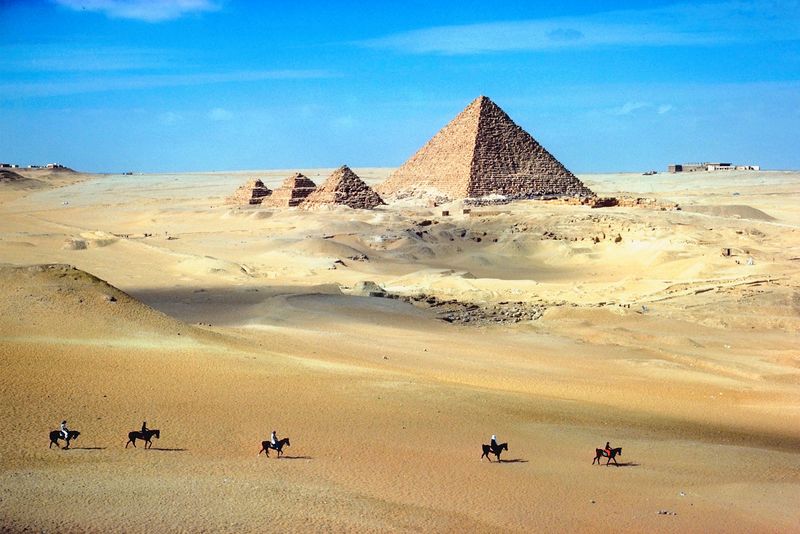It’s No Contest
Another October has come to a close and tomorrow night neighborhoods will come alive with trick-or-treaters on their annual quest for candy. Whether you man the door at home or help out at a community “Trunk-or-Treat,” I bet you’ll see pint-sized Optimus Primes, Bumblebees, and Megatrons making the rounds.
Transformers: Revenge of the Fallen reigns as the box office champion of the year. My husband, a fan from childhood, brought the film home the day it was released on DVD. In between metal-crunching battles among Autobots and Decepticons, the human protagonists learn of the long history shared by our planet and the alien robots. As the story goes, a rogue Transformer (known as “the Fallen”) came to Earth in 17,000 BC to drain our Sun’s energy. The good Autobots thwarted the Fallen’s plans and banished him from Earth—thus, inspiring his desire for revenge.
I’ll admit the movie’s plot is convoluted, but this backstory about the Fallen brought to mind archetypes of ancient Near Eastern creation myths—and how they compare to the Genesis creation account.
Krista Kay Bontrager, notes some of these similarities in her Bible study guide, The Bigger Picture on Creation.
Major Themes of Ancient Near Eastern Creation Myths:
- Existence of one or more supreme creator(s)
- Primeval watery chaos
- Separation of light and dark
- Sky as a watery expanse
- Separation of Earth (dry ground) from the sky
- Creation of the sun, moon, and stars
- Origin of animals
- Origin of humans (male and female)
- Assignment of humanity’s roles/functions
- Origin of evil
So, do these similarities compromise the truth of Genesis? No. Krista explains, “Given this historical backdrop, it should not be surprising that the Bible’s account of creation shares certain literary features with the creation myths of its ancient neighbors. Such similarities…enrich our appreciation and understanding of the biblical account.”
Besides, getting down into the details of the various creation stories reveals some major differences between Genesis and the myths of the ancient Near East.
Differences
The cultural, philosophical, and theological implications of the Genesis creation account still impact today’s world, but also had an immediate purpose for Moses and the Israelites. Genesis was meant to directly contradict the neighboring myths of the day and to tell the Israelites the truth about their God and His creation.
No rival: Whereas the Mesopotamian gods battled each other for control of the world, YHWH has no rival and no competition for supremacy. Even Satan’s powers dim considerably when compared to those of the biblical God.
No explanation for God’s existence: The Egyptians tried to explain the existence of their creator god by saying he emerged from the primeval waters. YHWH requires no such backstory—He simply is.
Dignity of humanity: Krista points out that unlike neighboring myths, which often depicted people in degrading roles, Genesis ascribes to humanity the image of God. As bearers of this image, every individual inherently deserves dignity. Furthermore, God doesn’t assign Adam and Eve menial tasks or subject them to slavery; rather He places them as rulers over the earth and all its creatures.
Creation not evil: Throughout Genesis 1 God describes His creation as “good” or “very good.” In their article, “Was Evil Present in God’s ‘Very Good’ World?” Dr. Hugh Henry and Daniel J. Dyke elucidate a possible reason for doing so:
“In ancient creation accounts, such as the Baal Epic or the Enuma Elish, a cosmic struggle occurs between good and evil. These powers are often associated with physical aspects of the created order. For example, the sea—personified as Yam in Canaanite mythology and as Tiamat in Mesopotamian mythology—is associated with evil. By declaring such objects tob [Hebrew for “good”], God negated a major concept of pagan thought; these items are not evil, but simply part of His creation.”
Additionally, Genesis 1–2 made it clear to the Israelites that God alone created the whole world. Therefore, only He is worthy of worship. And, as Isaiah 44 illustrates, worshipping idols of any kind is demeaning and foolish.
Most importantly, Genesis sets the stage for the ultimate love story. John 3:16 reminds us, “For God so loved the world that he gave his one and only Son, that whoever believes in him shall not perish but have eternal life.” God’s unfailing love transforms fallen people into “saints in the kingdom of light.” And that generous compassion is evident from the get-go as God the Creator broods over the “formless and empty” Earth and carefully transforms the void planet into a lush home for humanity.
– Maureen
Resources:
To learn more about the Genesis creation account, check out these resources:
- Krista’s Bible study guide, The Bigger Picture on Creation.
- More articles by Dr. Hugh Henry and Daniel J. Dyke: “What Does a ‘Very Good’ World Look Like? Part 1 (of 2)” and “What Does a ‘Very Good’ World Look Like? Part 2 (of 2).”






